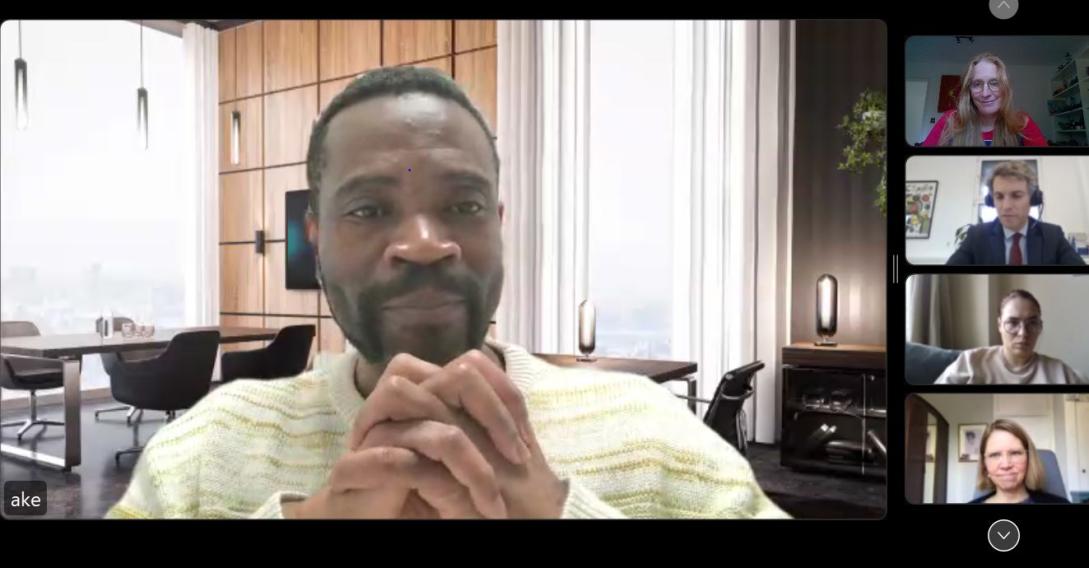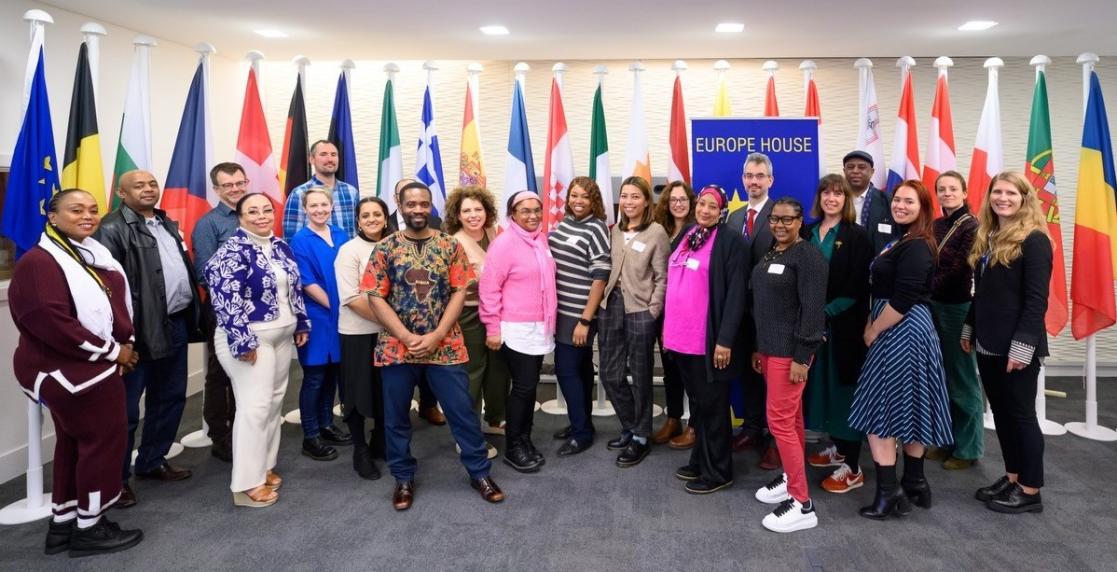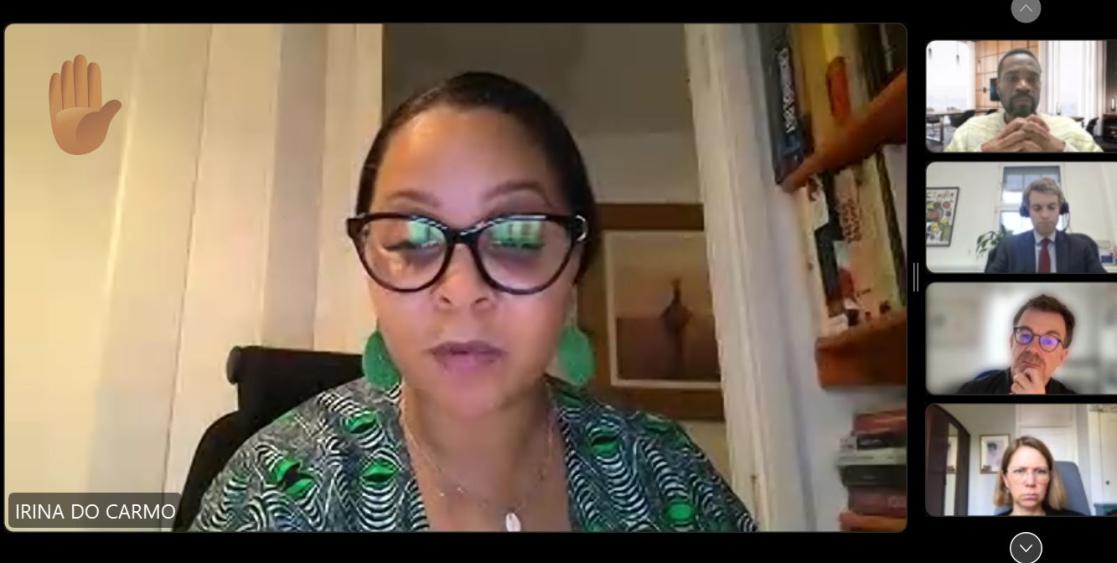EUROMEC convenes online: addressing the challenges faced by minority ethnic EU Citizens in the UK

The EU Delegation to the UK, in partnership with the Black Europeans Association, is working to shine a light on the work of the EUROMEC Monitoring Network - a unique platform seeking to address the challenges faced by minority ethnic EU citizens and their family members in the UK.
Importance of data collection
At the initial Strategy Day (pictured below) organised by the EU Delegation on minority ethnic EU citizens in March this year, participants emphasized the need for accurate and reliable data on ethnic minorities to fill knowledge gaps and to tackle the issues they face.

EUDEL
The EUROMEC monitoring network virtual meeting of October 9 brought together over 40 key stakeholders from civil society, advocacy groups, and EU Member States to do just that.

EUD
The meeting, held on this occasion during black history month, allowed participants to hear presentations from the3million and the Law Centres Network on the data they collected concerning the issues facing minority ethnic EU citizens and discuss key challenges in their line of work.

EUD
Aké Achi (pictured above), Black Europeans CEO and co-chairman of EUROMEC, noted: "We want to raise awareness on the experiences and perspectives of minority ethnic EU citizens. By collecting accurate data, we can better understand the challenges we face and advocate for meaningful change."
Rotating Chair of EUROMEC
The Black Europeans association, which has played an essential role in bringing this working group to life, is co-chairing the EUROMEC meetings as part of a six-month rotating co-chairmanship. This capacity-building effort, combined with the network’s ongoing work, reflects the EU Delegation’s commitment to fostering greater diversity and inclusion. The group marks a first, as there has never before been a working group solely focused on the challenges of minority ethnic EU citizens managed by an EU Delegation.
Objectives of EUROMEC:
- Strategic engagement: EUROMEC offers a dedicated space for addressing the unique challenges ethnic minority EU citizens face in accessing their rights, particularly under the EUSS and the Withdrawal Agreement.
- Systemic challenge identification: the group actively monitors and evaluates systemic issues impacting minority ethnic EU citizens, ensuring their rights are protected while also anticipating future challenges.
- Best practices: the working group draws on best practices from the EU Anti-Racism Action Plan and the EU Action Plan on Human Rights and Democracy. These frameworks, along with input from people with lived experience, guide the development of practical solutions.
- Building trust: the network fosters trust and cooperation between its members, ensuring that the voices and concerns of minority ethnic communities are central to the discussions.
- Safe communication channels: EUROMEC provides a secure space for candid discussions, allowing sensitive issues to be addressed openly and without fear of judgement or dismissal.
A commitment to diversity and inclusion
The work of EUROMEC reflects the European External Action Service’s (EEAS) firm commitment to integrating diversity and inclusion into both its internal operations and external actions. The co-chairing role of the Black Europeans Association exemplifies the importance of diverse leadership in addressing these issues. By spearheading this effort, the EU Delegation to the UK is setting a critical example of how ethnic minority EU citizens’ rights and voices can be better protected and prioritized.
As Black History Month prompts reflection on the importance of representation and equity, the work of EUROMEC highlights the EU’s dedication to ensuring that every citizen—regardless of their background—has equal access to rights, protections, and opportunities. Through strategic engagement, data collection, and collaboration, EUROMEC is helping to shape a more inclusive and equitable future for all citizens.
Pedro Serrano, EU Ambassador to the UK, commented on the importance of the initiative: "The establishment of the EUROMEC Working Group is an important step in addressing the unique challenges faced by minority ethnic EU citizens in the UK. It offers a dedicated platform to address their concerns. We continue supporting their rights under the Withdrawal Agreement and implementing our commitment to diversity, inclusion, and equality”.





